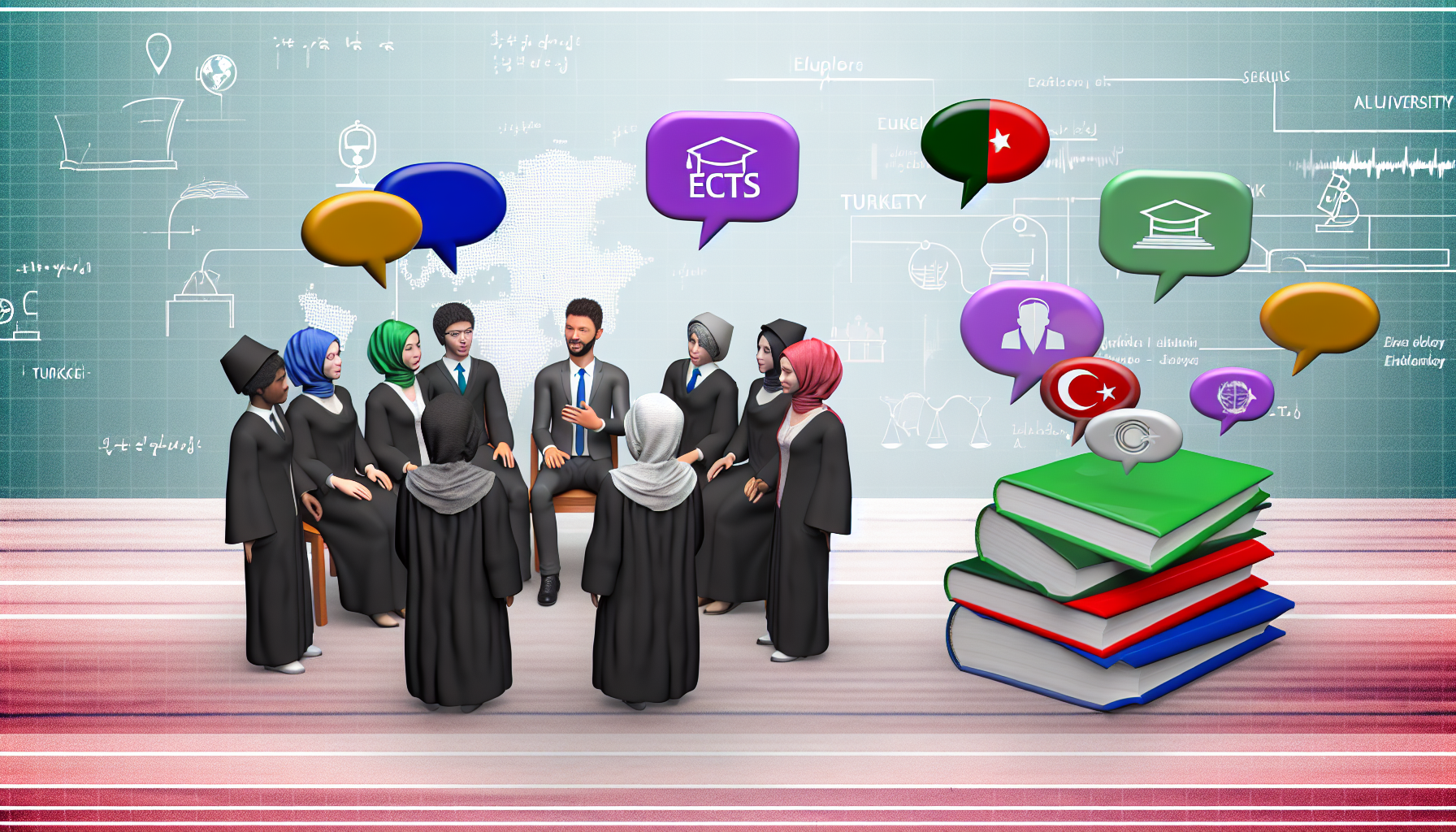Challenges Faced by Turkish Students in ECTS Integration
Turkish students often encounter a myriad of challenges when integrating into the ECTS (European Credit Transfer and Accumulation System) framework. These challenges arise from differences in curriculum structure, academic expectations, and administrative procedures. Here’s an in-depth examination of the obstacles along with strategies to effectively overcome them:
1. Differences in Academic Standards
One major issue is the distinct grading systems and course structures prevalent in Turkish universities compared to their European counterparts. This discrepancy can lead to confusion when transferring credits. Understanding the nuances of the ECTS framework is essential for these students to navigate their academic journey successfully [Source: Study.eu].
2. Language Barriers
Language proficiency becomes a significant barrier as many European courses are conducted in English. Students lacking strong language skills may find it difficult to comprehend course material and engage effectively in discussions, which can hinder their overall academic performance.
3. Administrative Hurdles
Turkish students often face challenges related to navigating the bureaucratic systems of foreign universities. This includes comprehending the varied administrative processes that govern ECTS requirements, which can demand considerable time and effort.
4. Cultural Adjustment
The transition to new educational cultures poses its own set of hurdles. Students must adapt to differing assessment styles, teaching methodologies, and academic expectations, which can be overwhelming at first.
Strategies for Successful Integration into ECTS
The integration process does not have to be overwhelming for Turkish students; several strategies can aid in this transition:
1. Familiarize with ECTS Guidelines
Taking the initiative to understand the ECTS system is crucial. Students should focus on learning how credit equivalencies are calculated. Utilizing resources like the ECTS calculator can provide clarity on credit transfers.
2. Enhance Language Skills
Students can greatly benefit from enrolling in language courses or participating in exchange programs to enhance their English proficiency. This improvement can bolster their confidence and participation in academic settings.
3. Seek Guidance
Utilizing academic advisors or mentors within the host institution can help Turkish students navigate the complexities of ECTS. Such guidance can be invaluable for course selections and ensuring smooth credit transfers.
4. Prepare for Cultural Differences
Engaging with local student organizations or participating in intercultural workshops helps students acclimatize culturally, allowing them to better navigate their new academic and social environments.
5. Build a Support Network
Connecting with fellow Turkish students abroad, along with local peers, fosters a support network. This community offers emotional and practical support, helping students better manage academic expectations and life in a new country.
Benefits of the European Credit Transfer and Accumulation System (ECTS)
The ECTS offers numerous advantages that significantly broaden educational opportunities and simplify credit transfer processes for students:
1. Fostering Educational Mobility
One of the primary benefits of the ECTS is its facilitation of student mobility across Europe. This standardized system for credit recognition allows students to participate in international programs, such as Erasmus+, without fearing a loss of academic progress. By encouraging cross-border education, ECTS also promotes cultural exchange that is increasingly valued in today’s global job market [Source: Erasmus+].
2. Simplifying Credit Transfers
Credits within the ECTS are assigned to each course based on the required learning workload. This standardization ensures that students can transfer courses from one institution to another seamlessly, thereby reducing administrative burdens and recognizing their academic efforts, irrespective of their study location [Source: ENQA].
3. Broadening Career Opportunities
The experiences and skills acquired through ECTS-enabled programs are highly sought after. Students who study abroad often develop essential soft skills, including adaptability and intercultural understanding, making them more competitive in the job market. Furthermore, the diverse perspectives gained through international study enhance critical problem-solving abilities that are vital in our interconnected world [Source: British Council].
Maximizing Your ECTS Experience
To fully benefit from the ECTS system, students should consider the following practical tips:
1. Understand the ECTS System
It’s crucial for students to familiarize themselves with how ECTS credits are calculated. Each credit represents approximately 25 to 30 hours of student workload, encapsulating lectures, seminars, and independent study [Source: European Commission].
2. Plan Your Course Load Wisely
Using tools like the ECTS Calculator to wisely distribute credits over your study period can help manage workload effectively and avoid stress during peak assessment times.
3. Select Courses Strategically
Students should strategically choose courses that align with their academic and career aspirations. It’s advisable to consider prerequisites, course content, and the teaching style of professors while selecting courses [Source: Study.eu].
4. Engage with Faculty and Peers
Building relationships with professors and classmates can enhance the educational experience. Collaboration and peer assistance often lead to improved comprehension and retention of course material [Source: ScienceDirect].
5. Utilize Academic Resources
Maximizing the use of institutional resources such as tutoring centers and libraries can greatly aid in academic success. Many schools offer workshops on study skills and time management, helping students become more efficient learners.
6. Reflect and Adapt
Regular reflection on academic progress and adaptation of study strategies are recommended. This self-assessment can uncover effective methods and reveal areas for improvement [Source: SAGE Journals].
Sources
- British Council – Educational Mobility Research
- Erasmus+ – Benefits of Erasmus
- European Commission – ECTS
- ENQA – ECTS Guidelines 2015
- Course Description – ECTS Calculator
- ScienceDirect – The Importance of Peer Learning
- SAGE Journals – Assessing Study Strategies
- Study.eu – Choosing the Right University Course
- Study.eu – Understanding the ECTS System










